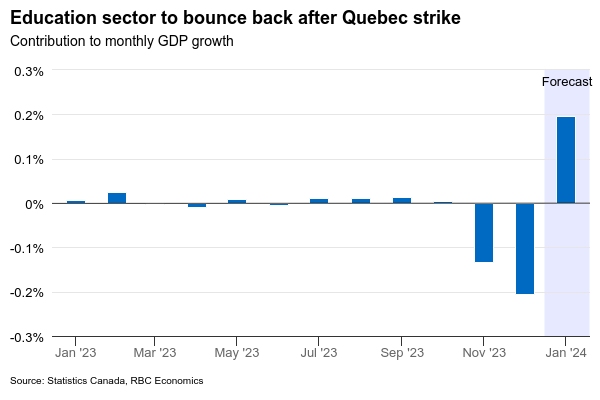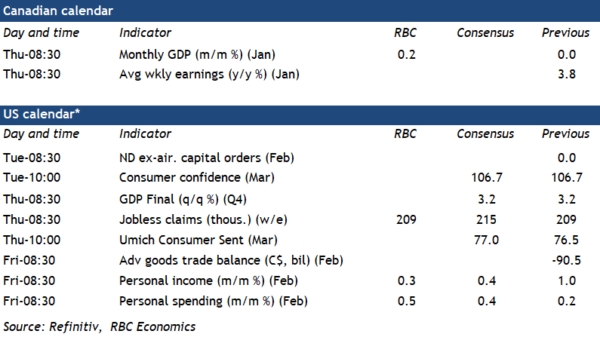Canadian gross domestic product for January is expected to show modest growth on Thursday, while employment data will highlight whether weakness in job vacancies and wage growth still persists ahead of the Easter long weekend.
We expect the Canadian economy to edge up 0.2% after a flat reading in December—and below the 0.4% increase forecasted by Statistics Canada’s advance estimate a month ago. Public sector strikes in Quebec that weighed on output in the education sector in November and December ended, and these workers returning to their jobs will boost output in January. Output in the manufacturing sector also likely grew by 1%.
But indicators for other sectors have been softer. Wholesale sale volumes were little changed in January and retail sales volumes went up 0.2% in January. Our tracking of card transactions is pointing to a pullback in accommodation and food service spending. Oil production in Alberta also appears to have declined significantly in January. Overall, GDP in the goods-producing side of the economy is expected to be little changed with an increase in service-producing industries largely accounted for by a bounce-back in the Quebec public sector.
The Survey of Employment, Payrolls and Hours (SEPH) for January will be watched closely for a further decline in job vacancies (running about 25% below year-ago levels) and for any sustained underperformance in wage growth. The Bank of Canada referenced “some signs that wage pressures may be easing” in the March policy statement. It was a nod to wage growth in the payroll employment data running about 2 percentage points below the 5% plus growth seen in the separate monthly labour force survey data in Q4 of last year.
Week ahead data watch
U.S. personal income likely edged up 0.3% in February, given that earlier wage growth data from the payroll report was still strong (0.14%). Personal consumption is expected to tick up again (0.5%) during the month on higher retail sales.


